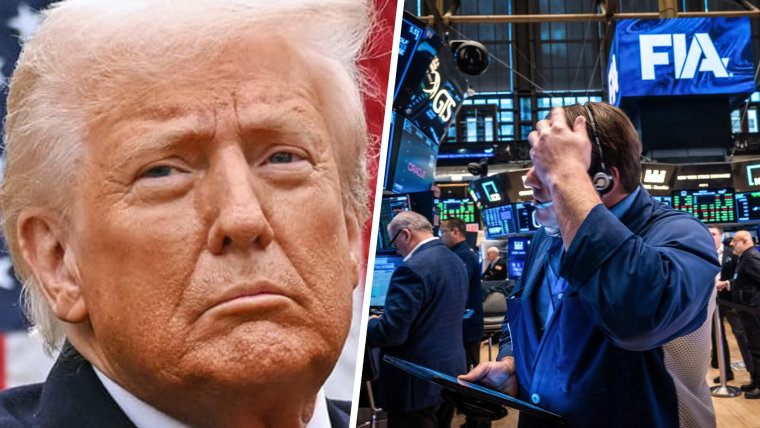Now that the 100-day mark has passed, the next big milestone for President Donald Trump will be to pass what he calls his "big beautiful tax bill."
Unlike the flurry of executive orders he's signed already, this time he will have to get Congress to cooperate. And unlike past presidents who had good working relationships with the leaders of the House and Senate, he's likely to be more of a bystander.
In fact, the self-proclaimed dealmaker will likely not make a deal at all, instead hedging his bets so that he can take credit or lay blame when it's convenient.
The biggest problem is money. Eager to win over voters on the campaign trail, Trump made a lot of grandiose — and expensive — campaign promises, including eliminating taxes on tips, overtime pay and Social Security benefits; making his 2017 tax cuts permanent; and even raising the cap on state and local taxes (SALT) from that previous bill.
The SALT cap promise may be the undoing of Trump's first real legislative effort.
Offsetting any of these would require finding some unpopular spending cuts or raising taxes elsewhere, which makes them tricky enough. But it's the SALT cap promise that may be the undoing of Trump's first real legislative effort.
For Republican members of the House from swing districts, the SALT tax is a top issue that they must deliver on. Like Trump, these representatives promised to raise the cap without cutting Medicare, Medicaid or Social Security benefits, which only makes the math that much harder. They are mostly moderate Republicans from blue states with high taxes.
On the other side, there is the Freedom Caucus, the Republican hard-liners from safe seats who will fight tooth and nail against any increase in spending without huge cuts to Medicare, Medicaid or Social Security benefits.
In past votes, the SALT Caucus has been vocal but also pretty squishy, falling in line with leadership. The Freedom Caucus, meantime, yells about its principles from the rooftops, but also ends up bending the knee to Trump.
In theory, this should give Trump tremendous negotiating power. But his inability to decide or articulate what he truly believes and his vague and contradictory campaign promises have left Republicans rudderless. Republican leaders are in the dark, wondering what Trump will say next and whether he will change his mind and blow up whatever deal they strike now.
This isn't by accident, either. It's Trump's modus operandi.
Last week, Treasury Secretary Scott Bessent called this chaotic management style “strategic uncertainty,” when discussing Trump’s negotiating style on tariffs. That is probably the most generous description of “going where the wind takes me” sentiment. Yet for Trump, that is where he is most comfortable.
How it will end remains unclear. One possibility is that Trump's big beautiful bill gets split as it tries to push through a renewal of his 2017 tax cuts to score a desperately needed win. But whether he would then be able to come back and finish the rest of his agenda as the clock ticks down to the midterms remains unclear.
Subscribe to the Project 47 newsletter to receive weekly updates on and expert insight into the key issues and figures defining Trump’s second term.

